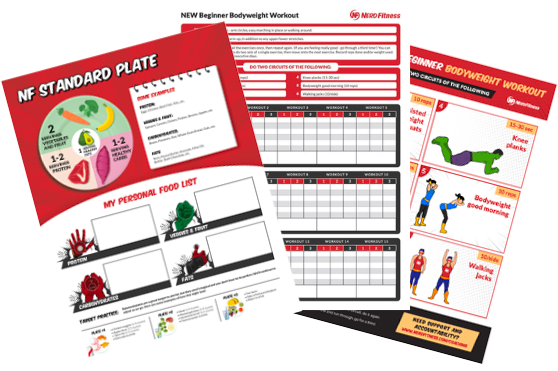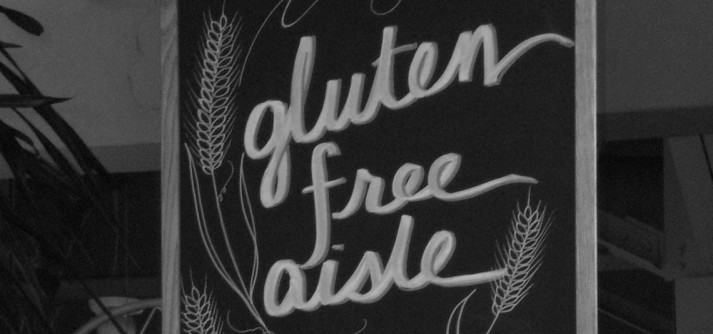
Gluten-free, so hot right now. Gluten-free.
Gluten has recently become a topic for discussion across the country as people attempt to get healthy (without having to actually make improvements to their diets or routines).
On top of that, more and more people are discovering they have some sort of gluten intolerance. A recent discovery shows that gluten intolerance can be up to four times more prevalent today than fifty years ago!
As a result, food companies are scrambling to rebrand, redevelop, and repackage everything as “gluten-free” to catch up with the latest craze.
We’ve received tons of questions from Rebels: Are gluten-free products a healthy alternative to the gluten-full versions of our favorite foods?
Even movies like “This is the End” have something to say about gluten (warning: NSFW language):
However, just like the characters in this scene, most people really have no idea what gluten actually is, if it’s really bad for you, and why you should eat or not eat it:
Jay: You have no idea what gluten is.
Seth: Gluten is a vague term. It’s something that’s used to categorize things that are bad. You know, calories, that’s a gluten. Fat, that’s a gluten.
Jay: Somebody just probably told you that you shouldn’t eat gluten and you’re like “oh well gee I guess I shouldn’t eat gluten.”
Seth: Gluten means bad sh** man, and I’m not eating it.
Although Seth means well, he really has no idea what he’s talking about when it comes to gluten. So, if you’re one of the few confused souls out there wondering “WTF is a Gluten?” I got you covered.
In case you’re keeping track, that’s two comedy references already in an introduction about gluten. Who knows, maybe I’ll even work some cat videos in this one.
Let’s learn about gluten!
Note: this article was typed on a locally sourced, organic, gluten-free computer.
What is HELL is Gluten?
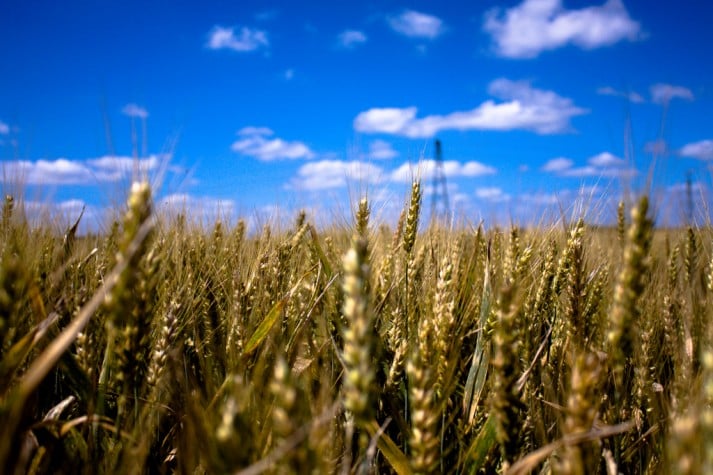
Gluten, meet Nerd Fitness Rebel.
My dear Rebel friend, meet Gluten.
Gluten is a type of protein found in foods processed from specific types of grain. It’s kind of gummy, doughy, and provides the “rising” property to things like pizza dough (when it interacts with yeast). You probably had no idea that it’s used as a thickener and filler in a LOT of products (don’t worry, I’ll let you know which ones below).
Think “glue” when you think “gluten.”
“Which grains specifically have gluten?” you ask!
Gluten is found in products made from wheat, barley, and rye.
Technically, some type of “gluten” can be found in all grains, but it’s really the specific type of gluten found in those first three (wheat, barely, rye) that cause a lot of issues; those will be the three that we’re going to focus on today. Also, quite a few types of grains (like oats) are often processed in close proximity to gluten-filled grains, and are thus “cross-contaminated.” Suck!
Why is gluten a troublemaker?
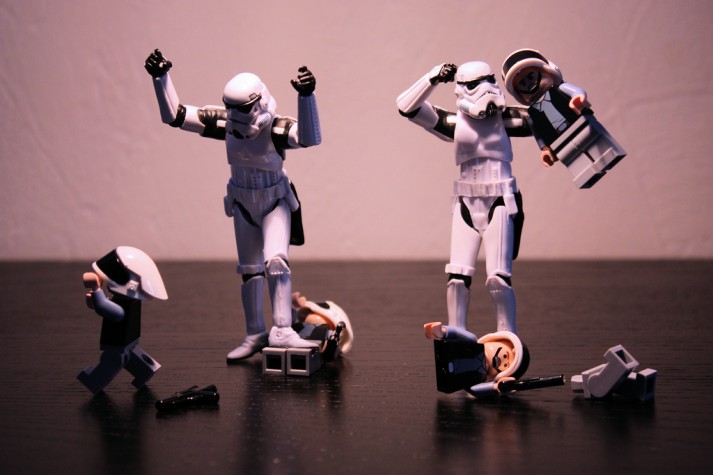
What makes gluten so bad?
Why are we trying to avoid it?
Why are companies making gluten-free alternatives?
So, if you happen to be a fan of anthropology and cavemen (including Fred Flintstone), here’s a simple explanation:
We developed as a species for hundreds of thousands of years, and only in the past 10,000 years did we learn about farming, agriculture, and thus begin the consumption of farmed grains like wheat, barley, rye, etc.
Because these types of foods are new to our bodies on the evolutionary timeline, many people never fully developed a tolerance for the consumption of gluten based foods, and thus they can cause all sorts of issues inside our body.
(Before you yell at me and say “but Steve this one dude found evidence that caveman ate grains that one time so you’re dumb. Long live gluten!” I cover all of that here.)
What happens to gluten intolerant people who eat gluten?
Imagine your body is throwing a party, and gluten wasn’t on the guest list but they show up anyways. Classic gluten. When your body says “Sorry Gluten, we don’t take kindly to your type around here. You can git out!” Gluten gets all depressed and says “but…I’ve walked ALLLLL this way, can I stay PLEEEASE?”
You feel bad, and don’t want to send Gluten home, so you tell him to quietly sit in the corner. Of course, Gluten is kind of a clutz, and can’t help but break the chair he sits in, knock things off the mantle, and spill a drink on your new carpet.
Go home Gluten, you’re drunk.
In biological terms, Gluten means well, but accidentally messes up your gastrointestinal tract, either inflaming it or actually damaging it.
If you’re intolerant, here are just SOME of the symptoms that gluten brings to the party: joint inflammation, bloating, irritability, dermatitis, skin rashes, diarrhea, constipation, acid reflux, unexplained iron deficiency, and more. Sure…he means well.
Many people (knowingly or unknowingly) have an intolerance or sensitivity to gluten. Doctor Fasano, director of the University of Maryland Center for Celiac Research, estimates that 6-7% of the population has a sensitivity with the digestion of gluten, though some small studies would suggest otherwise.
Some people (roughly 1% of the population) have a medical issue (autoimmune) with gluten – this is called celiac disease.
Celiac disease is a genetic, autoimmune digestive disease that damages the villi of the small intestine and interferes with absorption of nutrients from food. Ultimately, your body turns on itself when dealing with gluten, and your white blood cells attack and can destroy the lining of your small intestine, leading to the lack of absorption of nutrients from your food.
Not cool, gluten. Not cool.
Because gluten is so pervasive in the typical American diet, many people have no idea that they are gluten intolerant, and simply put up with the side effects as the aren’t aware they’re not supposed to feel like crap all the time.
So, gluten free = healthy?
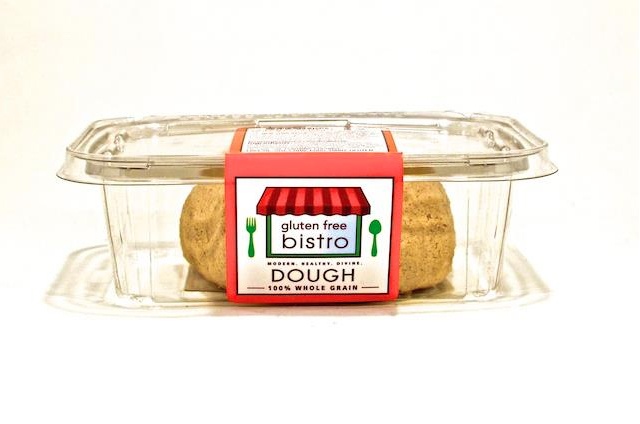
“Okay Steve, but what if I don’t have a medical issue, should I still be going gluten-free?”
Not so fast there, partner.
Just because something is “gluten-free” DOES NOT make it healthy. Going gluten-free might help you lose weight (as it did with rats in this study), but depending on HOW you go gluten-free, you might actually gain weight and get even unhealthier.
Just as there’s a wrong way to go Paleo (7,000 calories of bacon per day) and a wrong way to go vegetarian (donuts are vegetarian! Cookies are vegetarian!), there’s a wrong way to go gluten-free.
A lot of these new gluten-free products strip out the few healthy components of their regular versions. On top of that, a gluten-free version of a certain type of food is oftentimes 20-200% more expensive.
If you go “gluten-free” by simply just switching your diet to “gluten-free bread, gluten-free pizza, gluten-free pasta, gluten-free bagels, gluten-free Rice Krispies, and gluten-free cookies, ” you have made no real dietary changes and are setting yourself up for nutritional deficiencies, weight gain, and a plethora of other issues.
This is why the emails I receive announcing: “but I’m eating healthy: paleo cupcakes and gluten-free pancakes!” drive me crazy.
If you are looking to eat a gluten-free lifestyle, focus on eating more REAL foods instead of finding fake substitutes for the crap you used to eat!
By avoiding common gluten troublemakers, it just so happens you end up eating more real foods and less processed, sugary crap. That’s where your focus should be, not on any one indicator of a ‘health food.’ Whether you are looking for a “sugar-free,” “fat-free” or “gluten-free” label, there’s more to nutrition than a single marketing health slogan. Focus on eating REAL food!
Here are some real foods that ARE gluten-free:
- Meat
- Fish
- Fowl
- Eggs
- Vegetables
- Fruit
- Nuts
Does that diet look familiar? It should…it’s essentially the Paleo Diet!
Note: Everything that qualifies for the Paleo Diet is gluten-free, but not all gluten-free foods would qualify for the Paleo Diet. Also, foods like rice, dairy, oats (not cross-contaminated), and others can be part of a healthy, gluten-free diet if your stomach can handle them.
Now, the Paleo Diet works for some people, and it doesn’t work for others. THAT’S FINE. We’re obviously supporters of this way of eating here at Nerd Fitness because it accomplishes our main goal – getting people to think actively about how they fuel their bodies, putting the focus on eating real foods.
Just remember, Steve says Relax.
What foods have Gluten in them?
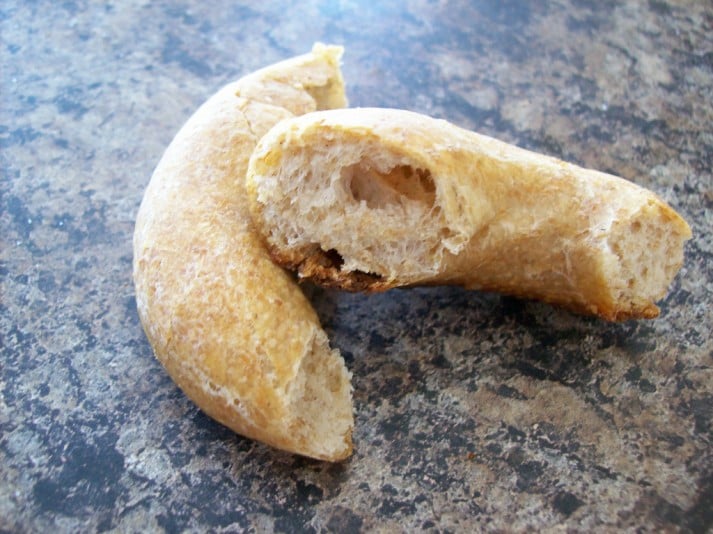
Let’s knock off a few of the obvious ones first: Gluten is present in wheat, which means gluten is present in flour.
It’s the gluten that allows flour to be turned into things like:
- Bread
- Pasta
- Bagels
- Donuts
- Pizza dough
“BUT STEVE, I love all of those thing!” I know, pal. Those things are all awesome and delicious. And not good for you. It’s no surprise that those five things listed above are five of the most caloric, carbohydrate dense foods on the market. If you’ve been reading Nerd Fitness long enough, then you know it’s these foods and sugar that are sabotaging our wastelines and body fat.
“Okay, so if I just cut back on the grains and carbs, I should be gluten-free, right?”
Nope. Gluten is used in practically every processed food, believe it or not. It’s present in beer (sad, I know), soy sauce (I’ll get to “soy” in another article), and even used as a stabilizing agent in ice cream and ketchup.
Gluten is also used in many imitation meats like mock chicken, beef, etc. It’s the gluten that gives these foods their texture.
Believe it or not, gluten-free foods like oats are often processed in a factory where they are cross contaminated with grains that contain gluten, and thus are no longer gluten-free.
Heck, there’s even gluten in Play-doh! So, if you considered making play-doh spaghetti and eating it, you’re not off to a good start. Also, eating paste isn’t a solid plan either.
The FDA is finally getting in on standards for the labeling of foods that are gluten-free, but oftentimes a lot of foods that DO have gluten aren’t properly labeled as such.
Here’s a longer list of many known foods and ingredients that contain gluten
How do I know if I’m gluten intolerant?
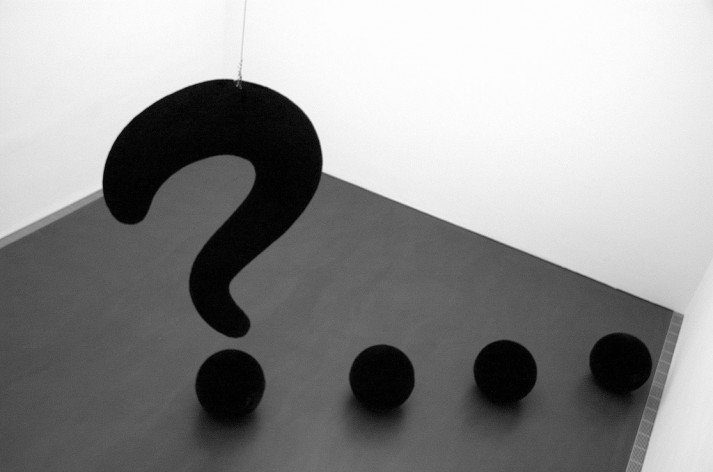
So, right now you’re reading this, and you’re thinking “hey, I feel like crap all day, and my joints hurt, and I become Crankenstein more often than I’d like…am I gluten intolerant or do I have celiac disease, Steve?”
You may be gluten intolerant. You might have celiac disease.
Statistically, it’s very unlikely, but it’s certainly not outside the realm of possibility.
If you have a close relative who has celiac disease, then your chances are definitely increased.
The tough part is that symptoms for gluten intolerance or celiac disease can often be a result of ANOTHER disease or issue: irritable bowel syndrome (IBS), inflammatory bowel disease, Crohn’s disease, intestinal issues, lactose intolerance, depression, and more.
If you are concerned and have one or many of the symptoms associated with celiac disease above, consider taking the following steps.
Note: Again, just because you have SOME of the symptoms listed above doesn’t mean your body hates Gluten.
“Can I get tested for gluten intolerance?”
As of right now, there’s no true test for just gluten sensitivity or gluten intolerance. If you believe you might have a sensitivity to gluten, the only way to determine if the diagnosis is legitimate is to go completely gluten-free for 2-4 weeks and judge your symptoms. Because this isn’t a blood or medical test, you can mistakenly diagnose yourself. You can literally make yourself feel better because you expect to feel better (like a placebo).
However, if you think DO feel better and don’t mind following a gluten-free lifestyle, run with it.
Note: If you are going to follow through with the celiac disease test below, it’s important to NOT transition to a gluten-free diet before being tested. Your body might have already started repairing itself and you could not get properly diagnosed.
“Steve, I seriously think I might have celiac disease. What’s my next step?”:
Reach out to your primary doctor, discuss your symptoms, and work with him/her to determine if you should have your blood tested – this is the most accurate way of getting properly diagnosed.
If you do get your blood tested, your doctor will be looking for “abnormally elevated levels of endomysial and anti-tissue transglutaminase antibodies.”
If your blood has these characteristics, then your next step would be an endoscopy and/or intestinal biopsy. Your doctors will be able to help you with this step.
(If you’re sad about cutting gluten out of your diet, try channeling a Boston accent and say things like “F*** GLOOTEN!” or “Hey GLOOTEN, youah a LOOSAH!”
I know this is what my friend Jodi Ettenberg (who has celiac disease) and my friend Dave Ursillo like to do.
So, should I go gluten-free?
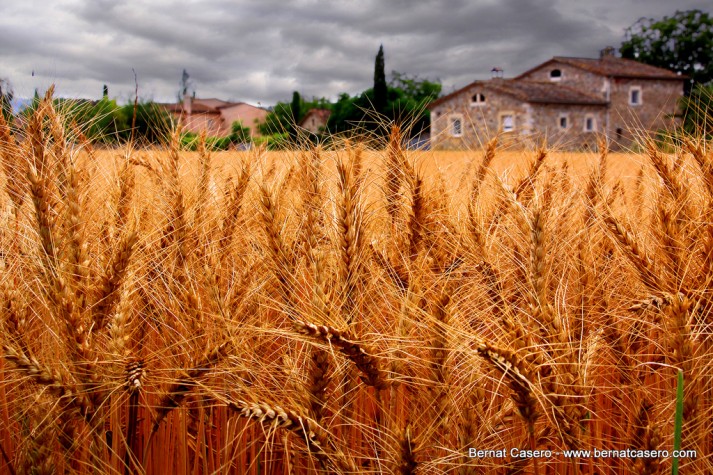
Long story short: if you are going to go gluten-free, do it the right way.
Eat more real foods. Just because something is gluten-free does NOT make it healthy. Filling your diet with processed gluten-free foods is the wrong way to follow through with a gluten-free diet.
If you are not gluten intolerant, and you don’t have celiacs, and eating gluten causes no ill effects: are you happy, healthy, and do you look good naked? If you can say yes to those three things, by all means keep doing what you’re doing – it’s working for you. Everybody is different and no one diet works for everybody.
However, if you can’t say YES to all three questions above, consider adjusting your diet – not necessarily cutting out gluten, but moving towards more real foods.
I don’t believe I have issues with gluten digestion, so I don’t mind eating foods with gluten occasionally. I know foods with gluten come from grains and contain lots of carbohydrates, so I try to minimize the consumption of these foods whenever I can. When I DO eat them, I can do so without adverse affects on my health or waistline, because it’s only on occasion.
Note: I do cut out foods with Gluten (and almost all non-Paleo foods) when I’m trying to slim down and drop my body fat percentage as low as possible.
What are some of the best gluten/celiac resources on the net?

So, if you are gluten intolerant or have celiac disease, where can you get more info?
Here’s a list of some relevant sites you can check out if you’re looking for more info:
- A good primer on what you can eat and what you can’t eat from Gluten Free Living. Including foods that are questionable and will require you to do some digging if you are aiming for 100% gluten-free. It also does a good job of covering the basics.
- A look at Gluten from Mark’s Daily Apple. Also, I found this article that compared two Gluten studies (one positive and one negative) fascinating.
- Celiac Central – for an organization focused completely on a gluten-free lifestyle. Celiac.com is also another resource if you’re looking for more information.
- Recent FDA announcement regarding labeling, and their gluten home page to stay apprised of labeling updates. This is a new industry, and the FDA is just now getting caught up with proper labeling practices. If you need to eat 100% gluten-free, then relying on certain labels or just EXPECTING things to be gluten-free might not be the best course of action. Get educated!
- Gluten immunochemistry – in case you’re a science nerd and want to geek out about what happens to your body when you consume gluten. Note: this is super dense stuff and made my eyes go cross after reading a paragraph…so click at your own risk!
- A roundup of a series of Gluten Free Blogs and Websites, from my friends over at Greatist. This is quite the big list, and some of the resources focus on the wrong type of gluten-free, but it’s quite comprehensive, and you’re a big boy/girl, so I’ll let you decide for yourself 🙂
- Gluten Free Beer! It exists, though this nerd has never had any. This is the official Nerd Fitness stance on alcohol, by the way: take care of yourself as often as you can, but don’t forget to have some fun too.
What else do you want to know about gluten?
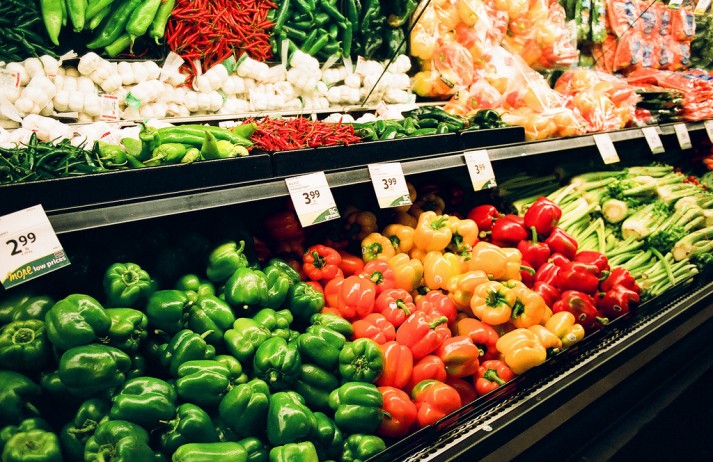
So, for those keeping track at home:
- 2800 words about gluten
- 4 comedy movie references
- 2 south park references
- 1 Bostonian swear
01 video of a cat stuck in a box.
But enough about cats, let’s talk about gluten. Have you been diagnosed with celiac disease? Have you had success or failure going gluten-free? Do you have tips for people who are struggling with the same thing?
How did your life change after going gluten-free?
What are your favorite gluten resources online?
I’d love to add them to the resources section above.
Let’s get the discussion started!
-Steve
PS: As stated everywhere on the site, I don’t consider myself an expert of anything, nor do I have a fancy piece of paper that declares I’m an expert. I’m just a nerd who has dedicated the past decade to learning about health and fitness, trying to bring clarity to this chaotic world of diets and workouts. Check with your physician or dietitian before making any changes to your diet.
###
photo source: gluten free sign, wheat field, star wars legos, question, bagel, veggies, gluten free, wheat, gluten books


